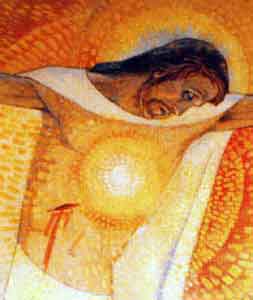This is a continuation of the 73 Steps to Spiritual Communion with God by Michael Dubruiel. The previous are posted below among the other posts and last week's archives. Here is the Sixth Step, part two:
6. Not to covet (cf Rom 13:9).
Doesn’t our desire or coveting rather blind us to achieving our goals, creating a false sense of what is needed to make us happy? What if we were to live each day with a sense of purpose but instead of being concerned about our plan we primarily were focused on God’s will for us.
This may seem too idealistic and we might retort, “How can I know God’s will for me today?” The spiritual writer Jean-Pierre De Caussade in his great spiritual work Abandonment to Divine Providence gave a simple guide to answering the question. The will of God can best be discerned by a simple acceptance of whatever the day brings and to a focus on that.
My spiritual director Benedictine Father Lambert Reilley once mirrored this thought when I complained about all the distractions that I was suffering from. “People keep showing up and interupting the work that I am trying to get done.”
“Why look at them as distractions?” Father Lambert asked me. “Instead see them as people that God is sending to you.” What Father Lambert (who now is Archabbot Lambert) was saying to me was mirrored in the Rule of Saint Benedict’s injunction that the monks were to welcome the stranger as though Christ himself were arriving at the monastery.









